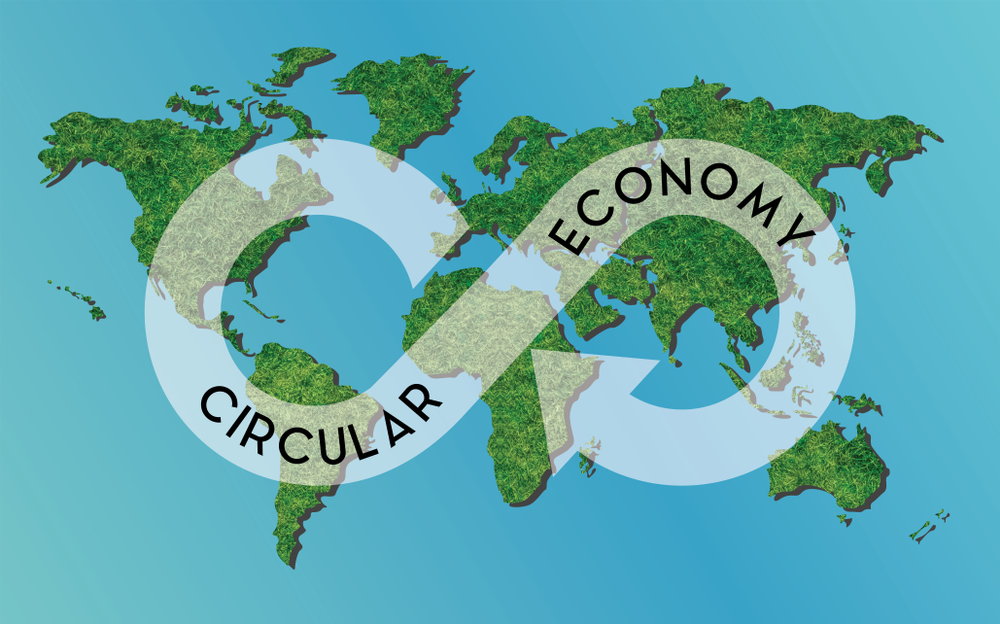
Circular Economy and the 2030 Agenda
This brand new, engaging five-week online course will focus on harnessing circular economy principles and systems-based approaches to explore ways in which we can redesign our systems, products and services to allow us to achieve a sustainable living for all, within planetary limits.
Introduction
This course will explore the application of Circular Economy (CE) practices in the context of the 2030 Agenda for Sustainable Development.
Four years into the implementation of the Agenda, it is evident that ‘business as usual’ will not help us to achieve the Sustainable Development Goals (SDGs). Systems-based approaches along with a strong commitment to deep rooted transformations and actions are vital to the reduction of humanity's footprint in our planet. Our resources are finite and the principles and practices of the circular economy will be catalytic in creating goods, processes and ecosystems that are restorative and regenerative by design.
The course will focus on ‘how’ and ‘why’ minimizing waste generation and maintaining the value of products and resources for as long as possible will be critical to achieving the goal of the 2030 Agenda - sustainable development for all.
Theoretical, practical and case study based approaches will be used to illustrate and support the concepts. The course will be strongly application-based, with numerous real-life examples from around the world, and will include tools useful to advance CE practices. There will be inputs from high-level speakers from the UN system, think tanks, private sector as well as academia. Participants will get the opportunity to engage with the distinguished experts through live webinars. Assignments, exercises, quizzes and peer sharing across the different modules of the course will benefit the participants and add to their learning.
Objectives
Upon successful completion of this course, participants will be able to:
Course Methodology
UNSSC online courses are designed to deliver maximum learning outcomes through optimal time investments into carefully chosen high-quality learning materials. Specially tailored to the needs of the professional interested in developing skills to advance their career or deepening their knowledge on a particular subject, our facilitated online courses combine self-paced study modules with applied learning components such as case studies, interactive exercises and collaborative group work.
Participants also benefit from live moderated webinars which feature valuable inputs from renowned subject matter experts, and allow real-time dialogue with high-level speakers. Webinar recordings are also made available to ensure that participants have a flexible and seamless learning experience.
An expert facilitator guides and assists the participants throughout the course, and provides real-time feedback on activities and exercises. Our user-friendly social online learning platform provides participants with the opportunity to connect with peers from diverse organizational backgrounds, fostering peer-to-peer learning.
While being interactive and participatory, UNSSC online courses give learners the opportunity to complete activities when it best fits their schedule. Participants are largely free to determine their own weekly study plan. Lasting five weeks and demanding six hours of work a week, UNSSC online courses incorporate the same high academic rigour as any UNSSC face-to-face programme.
Course Contents
Week 1 will provide an introduction to key features of the 2030 Agenda, explain the evolution of the concept and principles of the Circular Economy and explain the importance of the need to transition from a linear to a circular system.
Week 2 will discuss the butterfly diagram as a strategic tool for circular design and focus on its operational principles through technical and biological cycles of products and resources with the help of case studies.
Week 3 will apply the systems thinking approach to identify and describe life cycle management tools and techniques to reduce waste and pollution. This week will also diagnose the potential trade-off between Life Cycle Thinking and the Circular Economy despite closing the waste and pollution loop.
Week 4 will focus on recovered and recycled materials. By elaborating on the circular flow of products and resources, this week will identify the driving factors of premature obsolescence and will discuss techniques to tackle them.
Week 5 will further apply the systems thinking approach to understand the role of biological cycles in circular economy principles. The week will also review the potential of cities to regenerate natural systems.
Target Audience
UN staff from headquarters, UN country teams or regional offices, government representatives, development practitioners as well as members of civil society, academia and foundations.
Cost of Participation
Participants are at the centre-stage of the learning offerings at the UNSSC. UNSSC adopts a concrete methodology in its selection process that considers the scope, objectives, and expected outcomes of the course as well as specific selection criteria for its course participants to increase course impact. The criteria include quality of motivation, professional experience and knowledge, organizational commitment, diversity, the potential for future work, and willingness to contribute to the course.
Selection criteria:
Interested individuals are encouraged to sign up for the course and provide a clear and well-crafted motivation statement in the online application form, with a short explanation of the benefit they can derive from the course as well as their possible contribution to enriching the course.
This online course is offered free-of-charge.
Participants will enjoy the following benefits from the free online course:
Certificates from the United Nations System Staff College will be awarded to participants upon completion of the course.
Course Dates and Venue
11 May - 12 Jun 2020, Online
Registration
For more information and to register, please go to bit.ly/CircEcon2020-1
Deadline for enrolment is 01 May 2020.
Should you need any further information please do not hesitate to contact sustainable-development@unssc.org.
